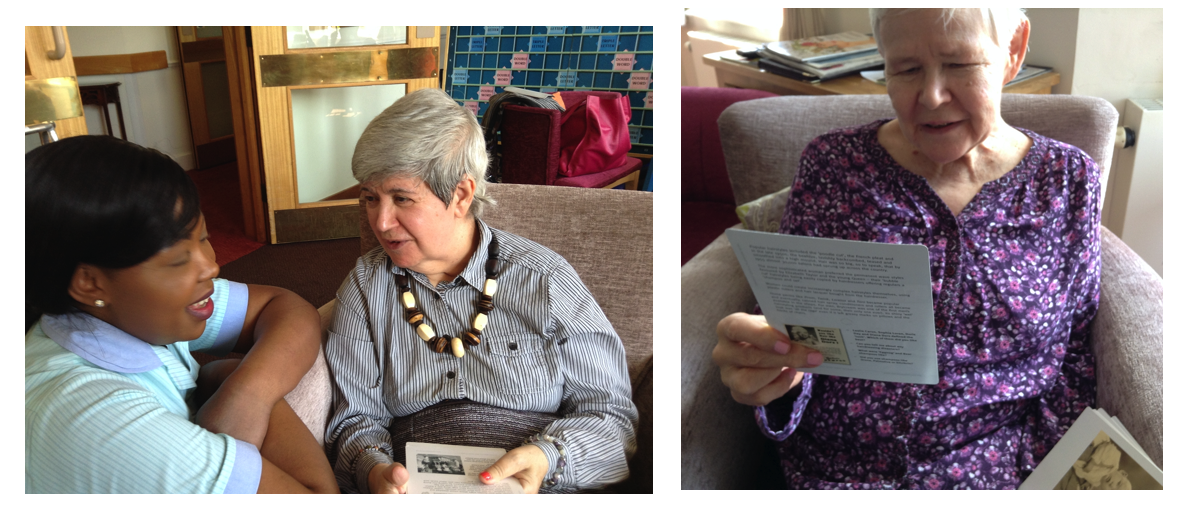
Chatterbox Groups
Being listened to matters. People living in care homes need meaningful conversation every much as do we who live independently – it’s part of our wellbeing.
In a care setting, if a person’s dementia is advanced, staff may struggle to engage with them. Few carers have any training in meaningful conversation – added to which, their ages, life experiences and possibly social cultures may be very different.
According to a study by Washington University in St. Louis and the University of Arizona, outgoing, gregarious people who have deep, meaningful conversations also have happier lives. People who spend less time alone and more time talking with others have a greater sense of personal well-being, suggests the study, published in the journal of the Association for Psychological Science. Co-author Simine Vazire PhD, assistant Professor of Psychology in Arts & Sciences at Washington University says, “having more conversation appears to be associated with a greater sense of happiness among the people in the study.” The happiest were those who engaged often in more meaningful and substantive discussions, as opposed to idle chit-chat and small talk.
This finding is also true of people living with dementia. When we value people’s histories, co-incidentally, we help give them a kind of meaningful future. If we fail to listen to their rich life experiences, we fail to value them. Stories of learning how to make do, mend and keep your chin up in challenging times are as relevant now as they ever were. It can be oddly comforting for us to hear the experiences of a person who has ‘come through’ with a longer perspective on life.
Since 2015, it’s been a privilege to facilitate regular conversation groups with residents at a London care home, based on the principles of REAL Communication (Reminiscence, Empathic engagement, Active listening and Life story) and the Chatterbox cards. The sessions last for about an hour each and take place twice a month. Four or five residents with advanced dementia attend the first group and about ten people with cognitive impairment but whose communication skills are still relatively intact come along to the second one.
A four-month trial proved so successful that they have continued ever since. The stories people have shared have helped us to map their life stories in a way that a more formal assessment simply cannot. Our thoughts, experiences and memories rarely follow a chronological path. In capturing them as they are sprinkled throughout the sessions, we have been able to build a more complete – and interesting picture of each person. This has then been translated into more focussed care.
Chatterbox Groups
Since 2015, it’s been a privilege to facilitate regular conversation groups with residents at a London care home, based on the principles of REAL Communication (Reminiscence, Empathic engagement, Active listening and Life story) and the Chatterbox cards. The sessions last for about an hour each and take place twice a month. Four or five residents with advanced dementia attend the first group and about ten people with cognitive impairment but whose communication skills are still relatively intact come along to the second one.
A four-month trial proved so successful that they have continued ever since. The stories people have shared have helped us to map their life stories in a way that a more formal assessment simply cannot. Our thoughts, experiences and memories rarely follow a chronological path. In capturing them as they are sprinkled throughout the sessions, we have been able to build a more complete – and interesting picture of each person. This has then been translated into more focussed care.





No comment yet, add your voice below!